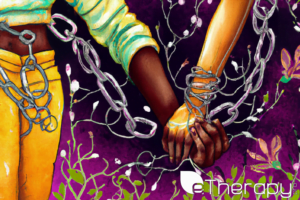
The impact of daddy issues on future relationships is a topic of great significance, as these unresolved emotional wounds can shape an individual’s ability to form and maintain healthy connections. The fear of abandonment, rejection, or disapproval stemming from daddy issues can create barriers to trust and intimacy. In this article, we will explore the profound impact of daddy issues on future relationships and discuss strategies for overcoming these challenges with the support of eTherapyPro.
The Complex Influence of Daddy Issues
Daddy issues, as a result of a strained or absent father figure in one’s life, can have lasting effects on future relationships. These issues often stem from an underlying fear of abandonment, rejection, or disapproval. The absence of a nurturing father figure can lead to a lack of trust and difficulties in establishing secure attachments. Understanding the complex influence of daddy issues is crucial for individuals seeking to heal and foster healthy relationships.
Patterns of Self-Sabotage and Unhealthy Attachments
- Self-Sabotage: Daddy issues can manifest in patterns of self-sabotage, where individuals unknowingly undermine their own happiness and fulfillment in relationships. The fear of being abandoned or rejected can lead to behaviors such as pushing partners away, creating unnecessary conflicts, or being overly critical. These self-sabotaging behaviors prevent individuals from experiencing the love and connection they desire.
- Unhealthy Attachments: Daddy issues can also contribute to the development of unhealthy attachments in relationships. Individuals with daddy issues may seek out partners who resemble their absent or unavailable fathers, hoping to fill the void or repair past wounds. This pattern can lead to codependency, where individuals become overly reliant on their partners for validation and emotional support, often neglecting their own needs.
Overcoming the Impact of Daddy Issues
Healing from the impact of daddy issues and nurturing healthy relationships requires self-reflection, self-compassion, and therapeutic support. Here are some strategies for overcoming the challenges associated with daddy issues:
- Self-Awareness and Acceptance: Begin by developing self-awareness and acknowledging the impact of daddy issues on your relationships. Recognize the patterns, fears, and insecurities that arise and understand that they are rooted in past experiences. Embrace self-acceptance and compassion as you embark on the journey of healing.
- Therapy and eTherapyPro: Seeking professional support through therapy can provide valuable guidance and tools to address daddy issues. eTherapyPro offers accessible and convenient online therapy options, connecting individuals with experienced therapists who specialize in navigating the complexities of daddy issues and their impact on relationships.
Healing is not a one-time event. It is a journey that requires us to be willing to face our pain, to grieve our losses, and to learn new ways of coping. – Susan Jeffers
- Building Self-Worth and Trust: Cultivate a strong sense of self-worth and develop trust in yourself. Engage in self-care practices that nurture your physical, emotional, and mental well-being. Practice self-compassion and challenge negative self-beliefs, replacing them with affirmations that promote self-love and self-acceptance.
- Communication and Boundaries: Effective communication is essential for building healthy relationships. Learn to express your needs, fears, and insecurities to your partner in a respectful and open manner. Establish clear boundaries that prioritize your emotional well-being and ensure your needs are met within the relationship.
- Healing Inner Child Wounds: Addressing daddy issues often involves healing the wounds of the inner child. Explore techniques such as inner child work, journaling, or guided visualization to connect with and nurture your inner child. This process allows for healing, self-soothing, and reparenting of the parts of yourself that yearn for love and validation.
The Power of Self-Reflection and Growth
Reflecting on Past Experiences: Take the time to reflect on your past experiences and the impact they have had on your relationships. Examine the dynamics of your relationship with your father or father figure and how it has shaped your beliefs and behaviors. By understanding the root causes of your trust issues, you can begin to address and overcome them.
Challenging Negative Beliefs: Daddy issues often lead to negative beliefs about oneself and relationships. Challenge these beliefs by recognizing their irrationality and replacing them with positive and realistic thoughts. Affirmations such as “I am deserving of love and trust” can help reframe your mindset and build self-confidence.
Seeking Professional Support
The journey of healing is not a straight line. There will be ups and downs, but it is important to keep moving forward. – Brené Brown
Therapy and eTherapyPro: Consider seeking professional support through therapy to navigate the challenges of daddy issues and their impact on your relationships. Skilled therapists can provide a safe and non-judgmental space for you to explore your emotions, gain insights, and develop effective coping strategies. eTherapyPro offers convenient online therapy services that can connect you with qualified therapists who specialize in addressing trust issues and relationship dynamics.
Building Emotional Resilience: Therapy can help you develop emotional resilience, which is crucial for overcoming trust issues. Therapists can guide you in developing healthy coping mechanisms, managing anxiety and insecurity, and building emotional self-regulation skills. Through therapeutic interventions, you can learn to trust yourself and others, fostering healthier and more fulfilling relationships.
Fostering Healthy Relationships
Cultivating Self-Love and Self-Care: Prioritize self-love and self-care in your journey of healing. Engage in activities that nourish your mind, body, and soul. Practice self-compassion, set boundaries, and honor your needs. By taking care of yourself, you demonstrate to yourself and others that you are deserving of love and respect.
Communication and Vulnerability: Open and honest communication is essential for building trust in relationships. Share your fears, insecurities, and needs with your partner in a supportive and understanding environment. By being vulnerable, you create opportunities for deeper connections and foster trust within your relationship.
Embracing Growth and Transformation
The deepest wounds are the ones that open us up to the greatest possibilities. – David Viscott
Embracing Personal Growth: Use your journey of overcoming trust issues as an opportunity for personal growth and transformation. Embrace self-discovery, engage in personal development activities, and pursue interests that bring you joy and fulfillment. As you grow, you become more resilient and better equipped to navigate the challenges of relationships.
Patience and Perseverance: Healing from trust issues takes time and patience. Be gentle with yourself and understand that progress may not always be linear. Celebrate even the smallest victories and acknowledge your resilience. With perseverance and a commitment to personal growth, you can create healthy and fulfilling relationships.
Conclusion of Healthy Relationships
Navigating the impact of daddy issues on future relationships requires self-reflection, self-compassion, and professional support. By understanding the patterns, challenging negative beliefs, and fostering self-love, individuals can overcome trust issues and cultivate healthy connections. With the guidance of eTherapyPro and the willingness to embark on a journey of healing, individuals can rewrite their relationship narratives and create a future filled with trust, love, and fulfillment.




